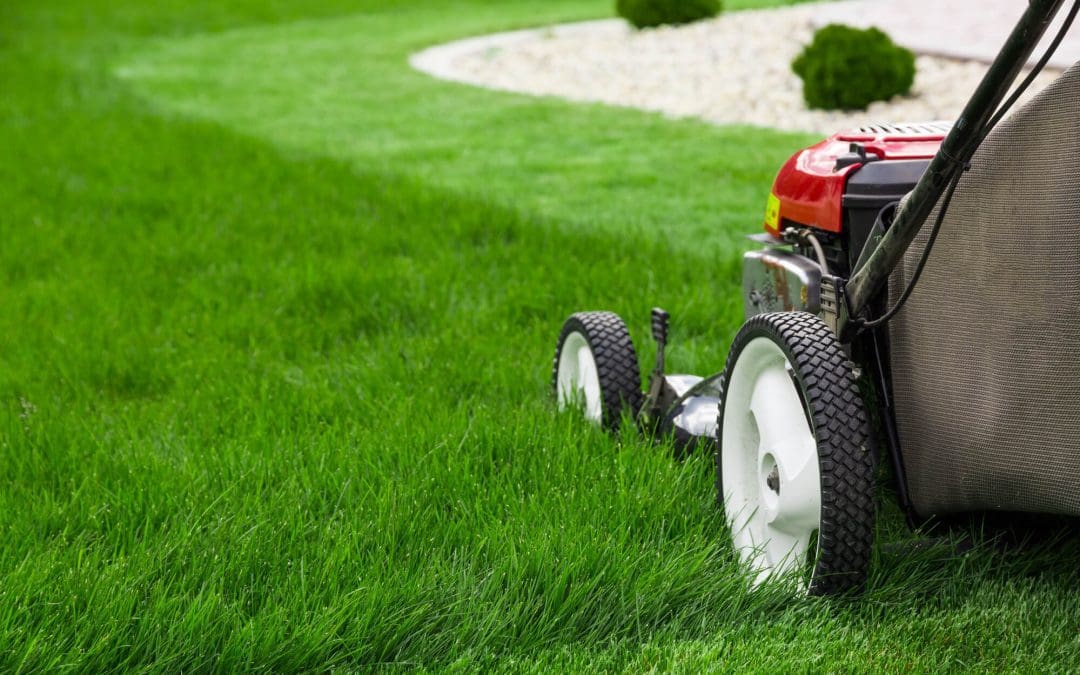As the summer sun shines bright, your lawn can quickly go from lush and green to dry and patchy if not properly cared for. Maintaining a healthy lawn during the hot months requires a bit of effort and knowledge. Here are just a few summer lawn care essentials to keep your outdoor space lush and healthy through the hottest part of the year.
Watering Wisely During Summer Lawn Care
Proper watering is crucial during the summer. Early morning is the best time to water your lawn, as it allows the grass to absorb moisture before the heat of the day causes evaporation. Aim for deep watering sessions, which encourage roots to grow deeper, making the grass more drought-resistant. Avoid frequent, light watering as it promotes shallow root growth and makes the grass more vulnerable.
Mowing Tips
Mowing your lawn correctly can significantly impact its health. Raise the mower blades to cut the grass at a higher level, typically around 3 inches. Taller grass shades the soil, reducing water evaporation and protecting the roots from the scorching sun. Also, avoid mowing during the hottest part of the day to prevent stressing the grass. Regularly sharpen your mower blades to ensure clean cuts, which minimize the risk of disease.
Fertilizing for Growth
Fertilizing your lawn in the summer provides essential nutrients that help the grass withstand heat and stress. Use a slow-release fertilizer to ensure a steady supply of nutrients over time. Be cautious not to over-fertilize, which can lead to excessive growth and increased water needs. Follow the recommended application rates on the fertilizer packaging for the best results.
Dealing with Weeds During Summer Lawn Care
Summer is prime time for weeds to thrive, competing with your grass for nutrients and water. Regularly inspect your lawn and remove weeds by hand or use a selective herbicide that targets weeds without harming the grass. Consistent mowing at the right height and proper fertilization can also help prevent weed growth by promoting a thick, healthy lawn that outcompetes weeds.
Pest Control
Summer pests, such as grubs and chinch bugs, can cause significant damage to your lawn. Look for signs of pest infestation, such as brown patches or chewed grass blades. If you suspect pests, use an appropriate insecticide, following the product instructions carefully. Beneficial insects, like ladybugs and predatory beetles, can also help keep pest populations in check.
Aeration and Soil Health
Aerating your lawn in the summer can help improve soil health by allowing water, air, and nutrients to penetrate deep into the soil. This process involves creating small holes in the soil to reduce compaction and promote root growth. Aeration is especially beneficial if your lawn experiences heavy foot traffic or has clay soil, which tends to compact easily.
Mulching and Composting
Applying a thin layer of mulch or compost to your lawn can help retain moisture, improve soil structure, and provide essential nutrients. Mulch around trees and garden beds to reduce water evaporation and prevent weed growth. Composting grass clippings and organic yard waste can create a nutrient-rich soil amendment that enhances lawn health when applied periodically.
Managing Thatch During Summer Lawn Care
Thatch, a layer of dead grass and roots that accumulates between the soil and grass blades, can prevent water and nutrients from reaching the roots. If thatch build-up is more than half an inch thick, it can harm your lawn. Dethatching, manually or with a specialized machine, helps remove this layer and promotes healthier grass growth.
Preparing for Heatwaves
Extreme heat can be tough on your lawn. Avoid mowing and fertilizing during heatwaves, as these activities can stress the grass. Increase your watering frequency slightly, continuing to water deeply. Adding a thin layer of mulch can also help keep the soil cool and retain moisture.
By following these summer lawn care tips, you can maintain a vibrant, healthy lawn throughout the year’s hottest months. Remember, consistent care and attention to detail are key to a thriving lawn all summer.
Summer Lawn Care FAQs
Can I mow my lawn when it’s wet?
It’s generally best to avoid mowing your lawn when it’s wet. Wet grass can clump and clog your mower, and the mower’s weight can cause soil compaction and damage the grass blades.
Are there organic alternatives to chemical fertilizers for my lawn?
Yes, there are several organic alternatives to chemical fertilizers, such as compost, manure, and organic lawn feeds. These options improve soil health and provide essential nutrients without the risk of chemical runoff.
How can I tell if my lawn needs aeration?
If you notice water pooling on the surface, compacted soil, or thin and patchy grass, your lawn may need aeration. Aeration helps improve soil structure and allows air, water, and nutrients to reach the roots more effectively.
What are some natural methods for controlling lawn pests?
Natural methods for controlling lawn pests include introducing beneficial insects like ladybugs and nematodes, using organic insecticides, and encouraging healthy soil through composting and proper lawn care practices.
GoPro Home Inspections offers inspection services to homebuyers and sellers. Contact us to schedule an appointment.

